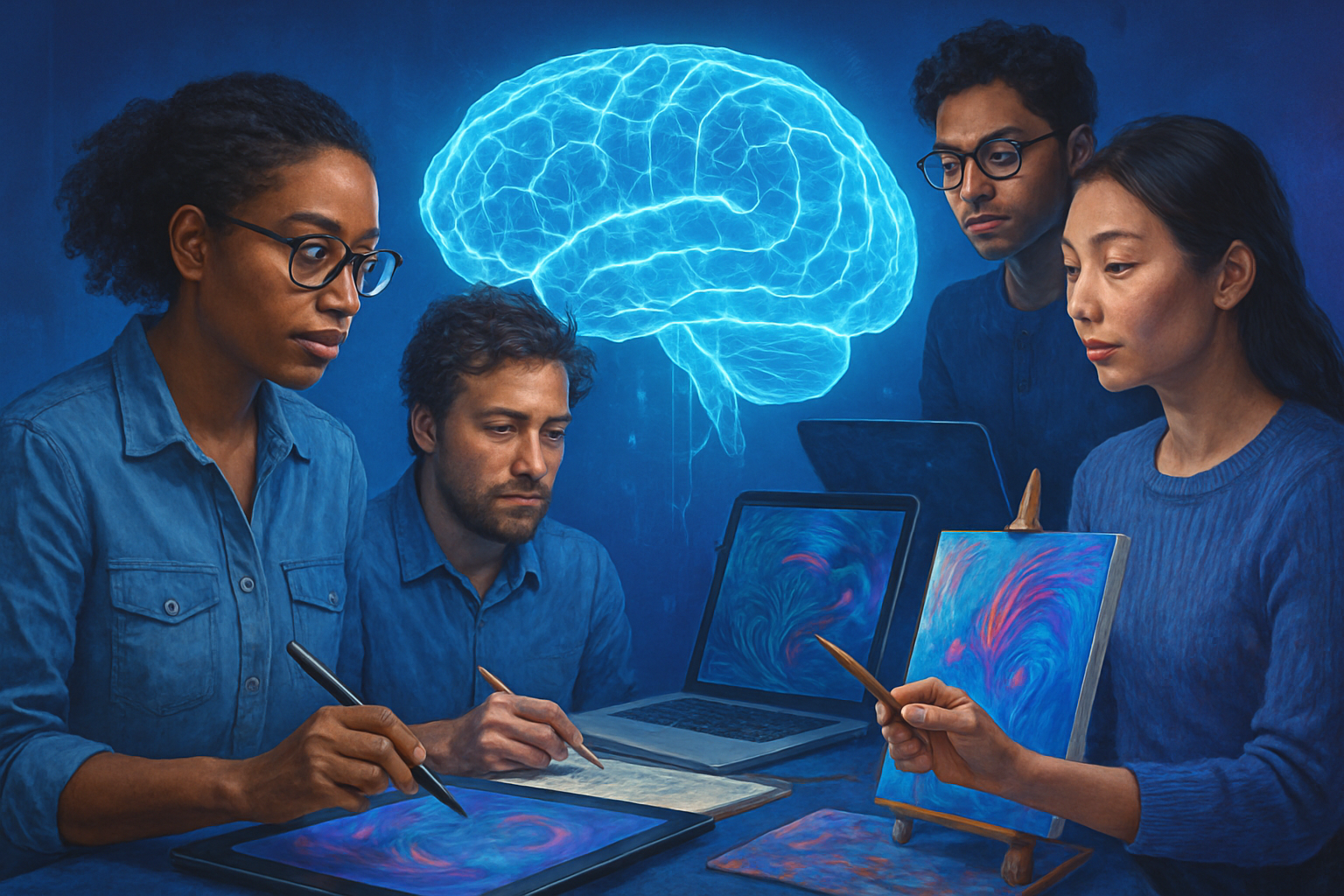Who Owns AI Art? Copyright & AI-Generated Content Explained
Navigating the complex world of AI art copyright. Learn who owns AI-generated content and how to protect your rights as a beginner.

Who Owns AI Art? Understanding Copyright & AI-Generated Content
AI tools are revolutionizing creative fields, making it easier than ever to generate images, music, and text. But this raises a crucial question: who owns the copyright to AI-generated content? It's a complex legal landscape, and understanding the basics is essential for anyone using AI for creative projects. Let's break down the key aspects for beginners.
The Current State of AI Copyright Law
Copyright law traditionally protects original works of authorship created by humans. The core issue is whether AI-generated content, created with minimal human input, qualifies for copyright protection. Currently, many legal systems require human authorship for copyright to apply.
This means simply typing a prompt into an AI image generator and downloading the result might not give you full ownership. The AI model itself was trained on a massive dataset of existing works, and the generated image is, in a sense, a derivative of that dataset. The degree of human input and the specific jurisdiction significantly impact the ownership determination.
Key Factors Determining Ownership
Several factors influence who owns AI-generated content:
- Human Input: The more creative input you provide, the stronger your claim to ownership. This includes detailed prompts, iterative refinement, and significant modifications to the AI-generated output.
- Terms of Service: Each AI platform has its own terms of service that outline the ownership rights of generated content. Always read and understand these terms before using a platform.
- Commercial Use: Using AI-generated content for commercial purposes, like selling images or using them in marketing materials, often requires careful consideration of copyright. Some platforms offer commercial licenses, while others may restrict commercial use.
- Jurisdiction: Copyright laws vary across countries. What's considered protected in one country might not be in another.
Practical Examples and Scenarios
Let's look at some scenarios:
- Simple Prompt: You type "a cat sitting on a chair" into an AI image generator. Your claim to copyright is likely weak because the prompt is simple and requires little creative input.
- Detailed Prompt & Editing: You create a complex prompt describing a specific scene, art style, and lighting conditions. You then use photo editing software to significantly alter the AI-generated image, adding your own artistic touches. Your claim to copyright is much stronger in this case.
- Commercial Project: You're creating a website for your business and need unique graphics. If you are using a series of AI generated images to populate the site with placeholder content, it is important to understand that you may have limited rights over the commercial application and should consult an attorney if you are attempting to trademark the content.
Protecting Your Rights
Here are some steps you can take to strengthen your claim to ownership of AI-generated content:
- Document Your Process: Keep records of your prompts, edits, and creative decisions. This documentation can be valuable if your ownership is ever challenged.
- Significantly Modify the Output: Don't just use the AI-generated content as is. Add your own creative elements and make substantial changes.
- Consult Legal Counsel: If you're using AI-generated content for commercial purposes, consider consulting an attorney specializing in copyright law.
- Check the Platform's Terms: Always review the terms of service of the AI platform you're using.
Automating Your Workflow for Enhanced Control
For advanced users, integrating AI image generation into automated workflows can provide greater control and customization. Platforms like Make.com allow you to connect AI image generators with other tools, such as cloud storage and image editing software. This enables you to automatically modify and enhance AI-generated images, further strengthening your claim to ownership through significant human input. For example, you could automatically add watermarks or apply specific filters to every image generated, creating a unique and recognizable style.
The Future of AI Copyright
The legal landscape surrounding AI copyright is constantly evolving. As AI technology advances, legal frameworks will need to adapt to address the unique challenges it presents. It's crucial to stay informed about the latest developments in copyright law and to follow best practices for protecting your rights when using AI-generated content.
Key Takeaways for Beginners
- Copyright law currently favors human authorship.
- The more creative input you provide, the stronger your claim to ownership.
- Always read and understand the terms of service of the AI platform you're using.
- Document your process and consider automating your workflow to add unique modifications.
By understanding these principles, you can navigate the world of AI-generated content with confidence and protect your creative rights.
Frequently Asked Questions
Can I copyright AI-generated art?
Currently, copyright law requires human authorship. The more creative input you provide, the stronger your copyright claim. Using detailed prompts and significantly modifying the output are helpful strategies.
What are the risks of using AI-generated images for commercial purposes?
Using AI-generated content commercially without understanding the copyright implications can lead to legal issues. Always review the platform's terms of service and consider consulting an attorney.
Is AI copyright difficult to understand for someone new to AI?
While the legal aspects can be complex, the basic principles are straightforward. Focus on providing significant human input and understanding the terms of service of the AI tools you use.
How can platforms like Make.com help with AI-generated content ownership?
Make.com allows you to automate modifications and enhance AI-generated content by connecting AI image generators with other tools, strengthening your claim to ownership through significant human input.
Affiliate Disclosure: Some of the links on this site are affiliate links. I earn a small commission if you make a purchase through them—at no extra cost to you. Thank you for your support!